September 2020 |
HR InTouchThe Monthly Newsletter of the Greater Madison Area SHRM |
|||||||||||||||||||||||||||||||||||
In This EditionPresident's Message COVID-19 Resources Information for Madison Area HR Professionals Government Affairs & Legal Updates NLRB Recent Decision: Employer Discipline and Employee Right to Engage Professional Development 2020 HCC a Virtual and Real Success! September 15th PDS Focus on Emotional Intelligence and Organizational Change Workforce Readiness & Diversity The New Theory of Change: The Inclusive Leader Continuum (Part 2) 9/17/2020 Drive Thru Job Fair – Looking to Hire! GMA SHRM Media Relations
Spotlight: Human Capital Conference Committee Virtual Events for the Rest of 2020! GMA SHRM Member News
Welcome New Members!
|
Hi GMA SHRM Members,
Our Virtual Human Capital Conference was a monumental success. A tremendous amount of work went into this event - I am so proud of everyone involved - we hope you found value in the event! Click here to view the full GMA SHRM Board of Directors
Information for Madison Area HR ProfessionalsGMA SHRM HR COVID-19 Resource Page This page has direct links to:
Our informal HR Roundtables are going virtual! These less formal gatherings will be getting together 3 times in April and you are welcome to join. Learn more about the Roundtables and check out the online times here. Government Affairs & Legal Updates NLRB Recent Decision: Employer Discipline and Employee Right to EngageSubmitted from Brian P. Goodman, GMA SHRM Programming Member, and Sarah J. Horner, both Attorneys at Boardman & Clark LLP
In a recent decision, the National Labor Relations Board (NLRB) modified the standard for determining whether an employer unlawfully discharged or disciplined an employee for abusive or vulgar conduct while the employee was engaged in activities protected by Section 7 of the National Labor Relations Act (NLRA). Section 7 of the NLRA protects employees' rights to, among other things, engage in protected concerted activity. Protected concerted activity is activity done on behalf of other employees concerning their interests as employees. Section 7 protections apply to all private employers and are not limited to union-related activities. For example, an employee in a non-union workplace bringing a concern about workplace safety to a manager’s attention on behalf of other employees is engaging in protected Section 7 activity. Employees are often passionate when they engage in Section 7 activity, leading employers to wonder when employees have crossed the line and engaged in unprotected abusive or vulgar conduct. Controversial Gene Therapies and how Employers and Insurers could push for Change!Submitted by Al Wearing, Chief Business Development Officer at Group Health Cooperative of South Central Wisconsin* Return to Top
If at first you dont succeed, postpone a month, then two more and then go virtual! |
|||||||||||||||||||||||||||||||||||
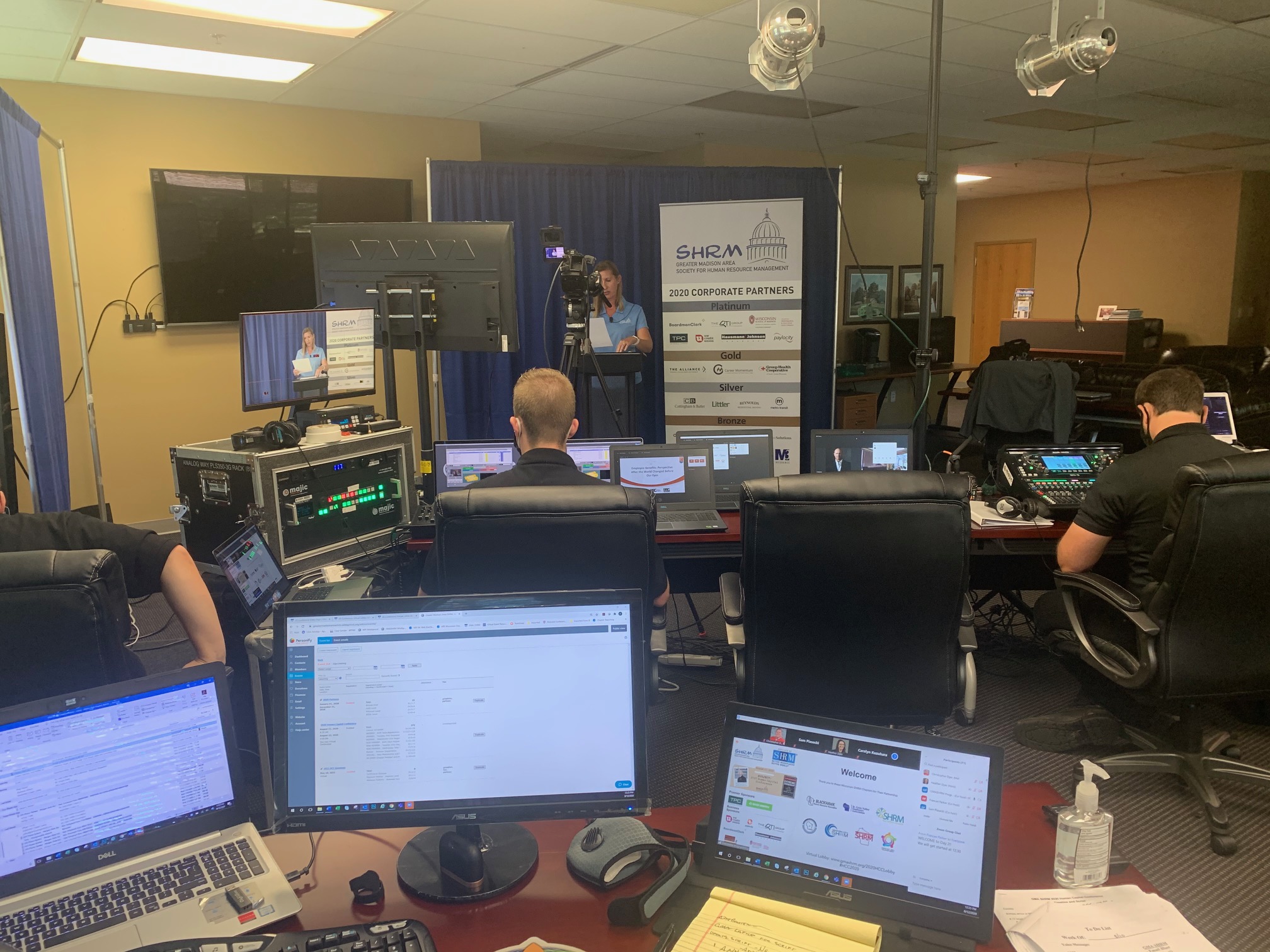 |
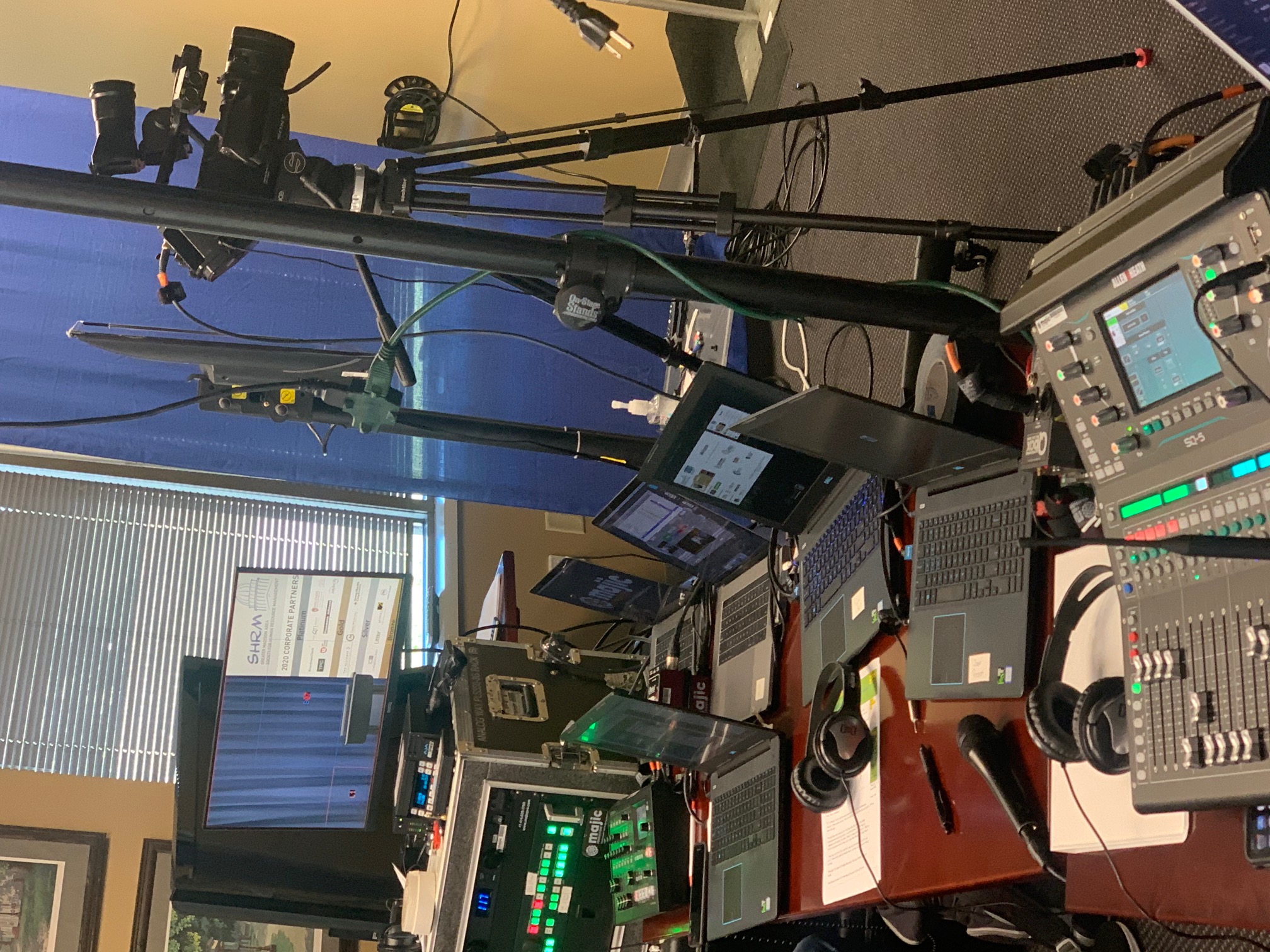 |
 |
Return to Top
September 15th PDS Focus on Emotional Intelligence and Organizational Change
|
Session 1: Emotional Intelligence: Planning for Emotions |
|
Session 2: Building Organizational Change Agility – HR’s Role in Successfully Leading People Through Change |
|
Presented By: Roger Wolkoff |
|
Presented by: Rachel Breitbach, FarWell |
|
Participants will learn to:
|
|
Participants will learn:
|
Workforce Readiness & Diversity
The New Theory of Change: The Inclusive Leader Continuum (Part 2)
Submitted by Mary Vesely (Moua), Employee Engagement & Inclusion Manager at Fairway Independent Mortgage Corporation and GMA SHRM Director of Diversity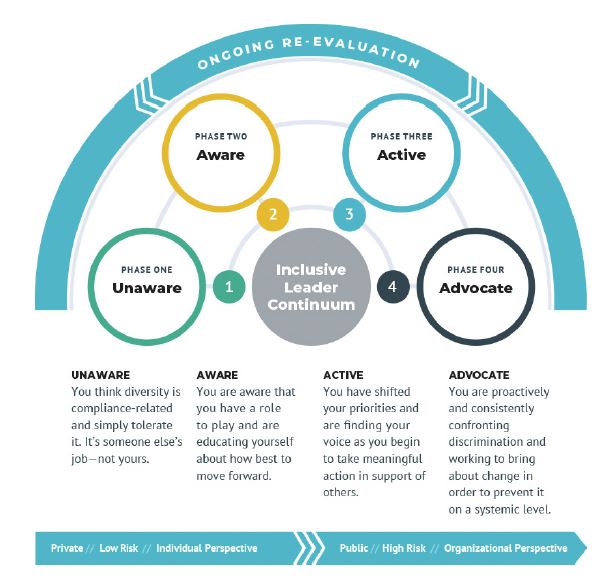 Diversity and Inclusion continues to be a very hot topic given our current climate. Last month, I shared from Jennifer Brown’s Book “How to be an Inclusive Leader” discussing what it means to be an inclusive leader and why it matters. In this newsletter I will continue sharing from her book as she explains the New Theory of Change: The Inclusive Leader Continuum.
Diversity and Inclusion continues to be a very hot topic given our current climate. Last month, I shared from Jennifer Brown’s Book “How to be an Inclusive Leader” discussing what it means to be an inclusive leader and why it matters. In this newsletter I will continue sharing from her book as she explains the New Theory of Change: The Inclusive Leader Continuum.Read on to learn more! You can buy her book on Amazon here.
A New Theory of Change: The Inclusive Leader Continuum
The stages of the Inclusive Leader Continuum illustrate how anyone can begin to shift their thinking, gain new perspectives, use their voice, and take meaningful action to create cultures of belonging.
Insert Inclusive Leader Continuum graphic
- Phase 1: UNAWARE
- You don't notice or understand that certain demographic groups, or those with specific backgrounds and experiences, have a much harder time thriving at work.
- You think diversity is compliance related and simply tolerate it.
- You are disengaged around diversity and inclusion and/or uninterested in it.
- This resistance may be silent or public.
- Phase 2: AWARE
- You realize the playing field is not level in the workplace or in other group or organizational contexts.
- You have been blind in some ways to inclusion.
- You are beginning to understand other people's perspectives and stories.
- You are working through your own stories and biases.
- Phase 3: ACTIVE
- You are proactively working toward equity and equal opportunities, supporting those with under-represented or marginalized identities, backgrounds, and experiences.
- You are pushing outside of your comfort zone, building new muscles
- You are finding your voice as your inclusive actions become more visible and you shift your priorities.
- Phase 4: ADVOCATE
- You are becoming a voice that is capable of transforming biased systems and sparking meaningful, widespread, and scalable lasting change
- This stage is hallmarked by brave public actions that challenge deeply rooted beliefs and practices.
- You are taking some calculated personal or professional risk to shift behaviors.
We all currently reside somewhere among these stages when it comes to our general mindset and daily actions, and there are no judgements about where you find yourself today. Some inclusive leaders bloom late in life into the desire to change and grow - maybe thanks to a single point in time or an aha moment, or a series of realizations over time - while others grow up already more attuned to the world around them and the part they have to play (based on life experiences, upbringing, who you are surrounded by, teachings, etc.).
These stages are revisited multiple times, based on various subjects (i.e. military veterans' unique challenges and opportunities when they re-enter the civilian workforce) where you might start at the beginning of the continuum.
It is not a linear journey that we travel only once. We travel forward and backwards many times as we learn, make mistakes, and grow. It can help to think of your growth toward becoming an inclusive leader, similar to a new habit you want to build, and then grow comfortable with being a bit (or very) uncomfortable along the way.
FREE ASSESSMENT: I highly recommend taking this assessment to see where you fall in the continuum based on Prioritizing Inclusion, Awareness of Intent vs Impact, Embracing Change, Bias Awareness and Language.
This assessment includes steps you may take in order to move forward towards inclusion: https://dei1.jbconlinelearning.com/self-assessment/
9/17/2020 Drive Thru Job Fair – Looking to Hire!
Submitted by Jennifer Brikowski, Employment & Training Specialist – Lead for DWD/State of Wisconsin, and GMA SHRM Director of Workforce ReadinessOn July 15, 2020, the Workforce Development Board of South Central Wisconsin, along with Job Service, hosted a drive thru job fair at Warner Park here in Madison. We had 38 employers participate and 334 job seekers attended this event. We are planning a second event at the Alliant Energy Center or possibly another location in Madison for September 17. If you are interested in participating, please email Jennifer Brikowski. Once the details are finalized you will be sent an email with all the information you will need. For the last event employers who did not attend provided us a letter sized flyer that we distributed in a bag for the job seekers. That is the plan again for this event. Please reach out to Jennifer with any questions.
Jennifer.brikowski@dwd.wisconsin.gov
Newsletter Updates
Newsletter Coordinator: Hello! I’m Sarah Hart and am excited to be taking over as the Newsletter Coordinator! We welcome any feedback regarding topics of interests, suggestions or general comments of what you’d like to see in future newsletters. After all, this is meant for YOU!
Please send your suggestions to our Newsletter Coordinator here.
Return to Top
GMA SHRM News & Upcoming Events
Spotlight: Human Capital Conference Committee
Submitted by Dana Denny, GMA SHRM Director of the Human Capital Conference Committee
Last year’s Human Capital Conference (HCC) seemed a lifetime away, didn’t it? We were all together at the Alliant Center in Madison, WI – chatting with friends, networking, enjoying lunch with friends we might not have seen in weeks or months. All of this was routine – another day in the life of a human resource professional attending a conference. How much can change in a year! Around the second week in March, life changed significantly for all of us. Most of us were mandated to turn bedrooms or family rooms into workspaces and adopt Zoom as required meeting facilitators. Several lost loved ones, both far and near. Routine work travel became less frequent. We learned to live with uncertainty as many of us weren’t provided dates to return to our cubicles or office buildings – our daily commutes became the length of time it took to walk down a flight of stairs. New phrases such as “new normal,” “working from home,” and “quarantine” became integral human resource constructs.
In mid-March the GMA SHRM Board and the HCC Committee seized an opportunity to offer low-cost, impactful virtual conference programming to the Wisconsin human resource community. Through taking advantage of existing networks, using member survey responses, working with keynote speakers, and inviting other WI SHRM chapters, the HCC Committee creatively provided conference content to over 270 attendees at the 2020 HCC Conference! The GMA SHRM Annual Human Capital Conference offers meeting attendees relevant human resource content on issues including compensation, government affairs, innovative recruiting techniques and employee engagement in an entertaining atmosphere that’s conducive for networking. We are pleased to announce next year’s HCC will be held at the Alliant Energy Center on Tuesday, May 18, 2021, so mark your calendars!
Although we have just begun our planning efforts for next year’s conference, we are always looking to add to our group of intrepid and wonderful volunteers! If you’d like to learn more about this committee and how you might benefit from volunteering for the GMA SHRM Human Capital Conference, please feel free to email me at dana_denny@hotmail.com with any questions.
Virtual Events for 2020!
- Our Roundtables have gone virtual for the rest of 2020!
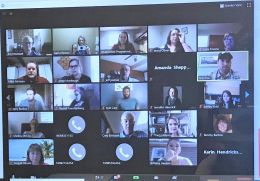
GMA SHRM is offering Virtual Roundtables during the current gathering bans.
Our Next Sessions:- September 22nd
- September 30th
- October 1st
September 15, 2020 - Professional Development Summit
Virtual Event
Session 1: Emotional Intelligence: Planning for Emotions
Session 2: Building Organizational Change Agility – HR’s Role in Successfully Leading People Through Change
Program Details and Registration
Return to Top
GMA SHRM Member News
Welcome New Members!
GMA SHRM welcomes the following members who joined our chapter in June 2020!
| Jennifer | Parker | PHR | |
| Diane | Rivers | Frank Beverage Group | |
| Kelly | Tourdot | ABC of Wisconsin | |
| Chelsea | Walmer | American Family Insurance |
Member Awards and Recognition
Congratulations to Gail Johnson, GMA SHRM Member and Volunteer! Gail was featured in In Business as the Profession of the Week on August 4th. Read the full article here!
Have you recently earned a professional achievement award? If so, we want to hear about it.
If so, we want to hear about it. Send us an e-mail, and we’ll publish your good news in the next HR InTouch!
In Transition
If you are a member who is in between jobs, or who is currently employed but seeking new positions or career paths, write us a brief description of your skill set, areas of expertise, what you’re looking for, etc. Send us an e-mail. We’ll publish your information in the next HR InTouch.
HR InTouch Guidelines
Article Writing:
Do you have an interest in writing for the HR InTouch? We have an interest in learning more about your area of expertise!
Why should you volunteer? Top three reasons: 1) to share your knowledge and experiences to educate others; 2) to become more connected in the HR and Dane County communities; and 3) to contribute towards the advancement of GMA SHRM and the HR profession.
The first step is for you to choose a submission option: you can pre-submit an article to GMA SHRM at any time for us to use in any of the upcoming newsletters, you can sign up to write for a particular month, or we can put you on a list of people to contact in future months whenever we need articles.
Article length:
Because the HR InTouch is now in an online format, the size is flexible. The article should be engaging and hold readers’ attention. Include the core information in your article, and we will advise if it is too lengthy.
Solicitation:
GMA SHRM is conscious not to allow solicitation through the articles, in an effort to protect the interests of our partners and members. The nature of the article should be educational (i.e., what are the business advantages of having a product like yours) or informational. Otherwise, if you truly are interested in advertising through the HR InTouch, you can work with our Marketing Committee. As a rule of thumb for article writing, if the submission relates to a for-profit event, or specifically markets your company (vs. your industry), it is an advertisement, and should be purchased. If it is a not-for-profit event that your company is hosting, or an announcement (i.e., a SHRM member recently joined your company), it is an acceptable addition to the HR InTouch content. If you have any questions related to the appropriateness of your submission, please contact us.
If you have questions, or to submit an article, contact GMA SHRM at chapteradmin@gmashrm.org .
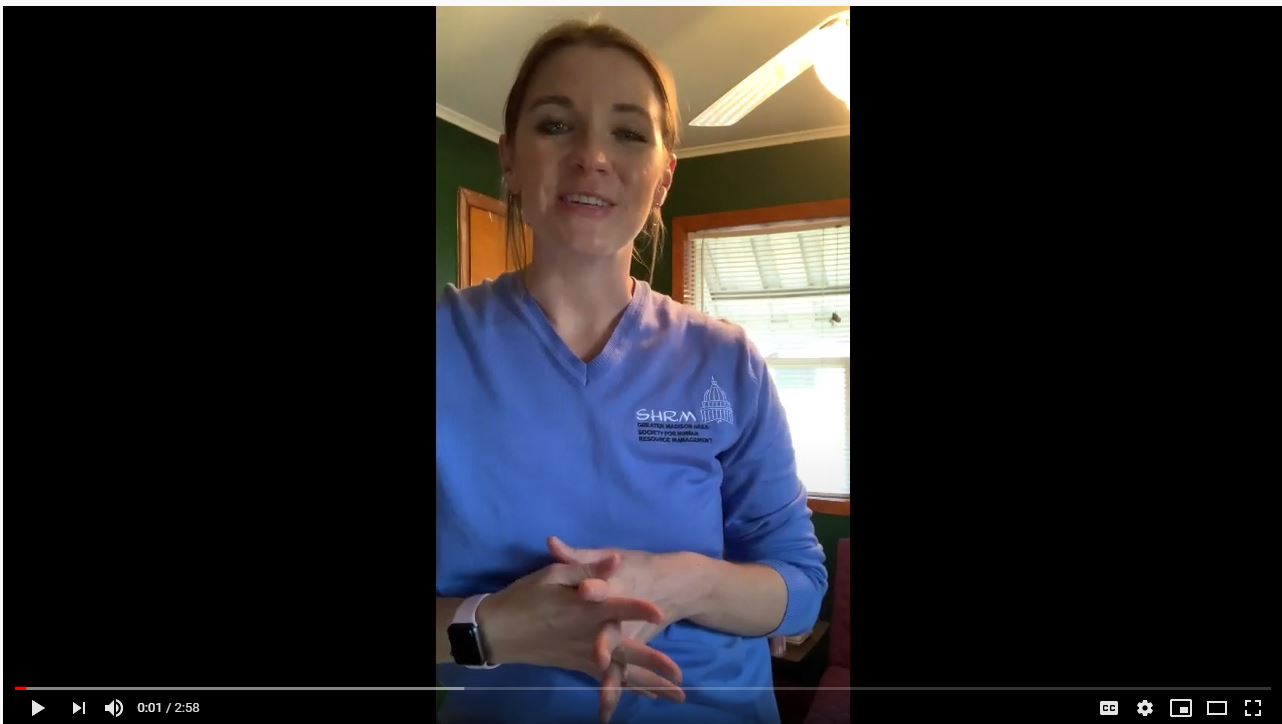
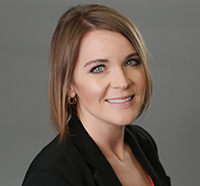
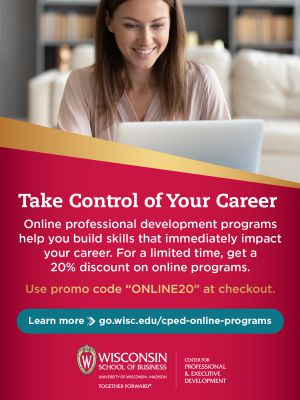
%20(A2904780x9DEB4)_135x169.JPG)

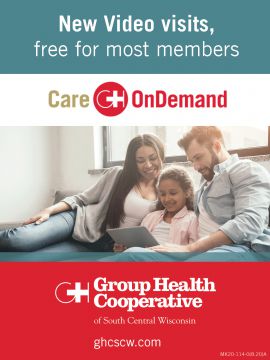
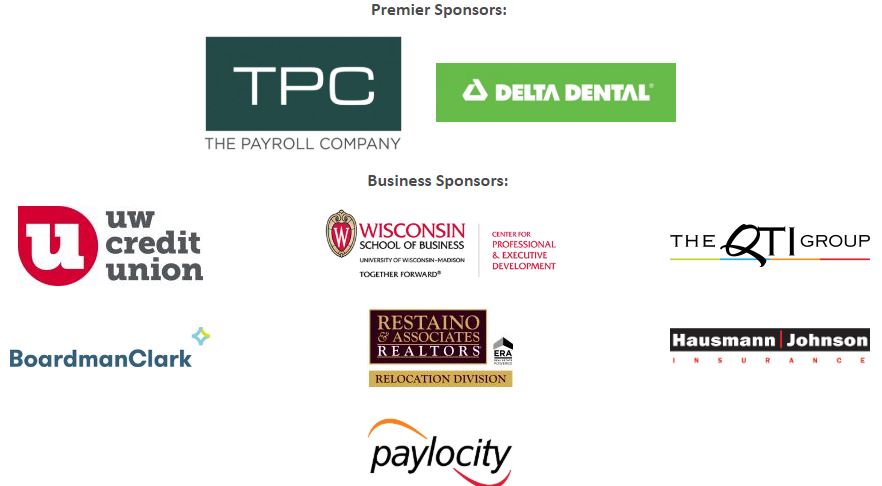 The 2020 Human Capital Conference - Virtual... and Real Success!
The 2020 Human Capital Conference - Virtual... and Real Success!